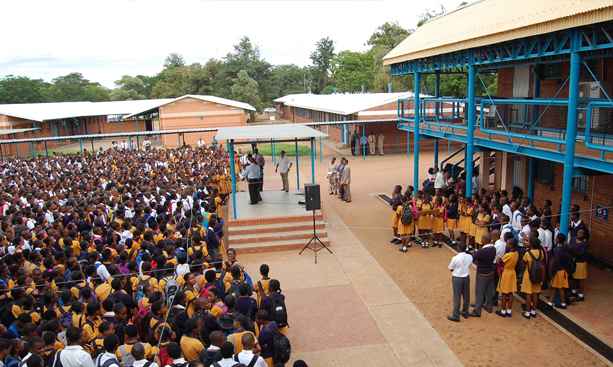In what is now a near global standstill amid Coronavirus crisis, a debate on how to balance sustainment of the economy as against neutralising the spread of the disease is on-going. We are facing an unprecedented threat from the COVID~19 pandemic caused by the SARS-CoV-2 virus. Whether or not the virus will ultimately evaporate on its own, nobody can tell. We might as well start preparing for a life with Coronavirus being part of our lives for a very long time. The only time when we are going to feel like our usual normal lives have been restored is when a vaccine has been found. As for now, the new normal will remain as per the World Health Organisation (WHO) prescript protocols.
Extreme social distancing (lockdown) has and is still deterring the spread of Coronavirus tremendously. A very contagious disease is to a great extent slowed down by lockdown. I don’t want to imagine what could have been the situation in the event that lockdown was not in effect. Be it as it may, lockdown has dreadful consequences on the economy, especially the non-informal sector. Not just the economy, lockdown has awful effects on services such as education, especially at a basic level. In as much as we advocate for online learning as the most effective mode of teaching and learning in cases like our current situation, we are aware that it does not substitute the physical classroom teaching and learning. In our own case, a greater constituency of our people cannot access the very infrastructure needed to enrol for remote learning. Thus, all possibilities of easing up restrictions in order to allow the economy and education services to run ought to be explored. This of course should be done bearing in mind the health protocols put in place.
My last submission was more like a ‘Business Continuous Plan’ for the basic education. It focussed more on how we could forge ahead as a sector. This submission on the other hand, is meant to emphasise the importance of health safety in schools in the event that education and training providers (ETPs) do open. In what seemed like a ‘Business Continuous Plan’, I proposed for completing classes to resume schooling in June followed by a double shift arrangement in August. All these propositions were premised on the fact that social distancing ought to be observed in the classroom situation. The other important consideration was to try by all means to avoid the complications that might arise next year in the event that we do not have any grade transition this year. The August double shift arrangement presupposes that the disease curve would have been flattened, and that winter season would be coming to an end by then. Now that it seems more likely that schools might open, I wish to submit my views on what I deem to be some pre-requisite health standards that ought to be in place before schools open. Outside the classroom, it is important that we address the school kitchen and hostels as key strategic areas.
The first thing is to communicate all the basic conditions and activities necessary to maintain hygiene at the hostels and kitchen. Standards such as cleaning and sanitation, food storage distribution and transport, personal hygiene and fitness to work by staff ought to be communicated. The proper usage of personal protective equipment (PPEs) such as gloves and masks, and the proper disposal thereafter, are some of the things that the concerned staff should be taught. Most importantly the staff should be made aware that whenever they are feeling unwell, they should stay at home. Staff at the boarding and kitchen department should also be made aware of the basic symptoms of COVID~19. These include a fever (high temperature), a cough, shortness of breath (breathing difficulties) and fatigue. Good hygiene practices should be emphasised to boarding and kitchen staff. These include proper hand hygiene by washing with soap and water, frequent use of alcohol-based hand sanitizers, good respiratory hygiene (covering mouth and nose when coughing and sneezing), frequent disinfection of work surfaces and touch points such as door handlers, and avoiding close contact with anyone showing symptoms of respiratory illness ‘World Health Organisation, 2020’. All in all, we ought to educate the general staff in schools on the importance of proper health practices and the symptoms of COVID~19, over and above ensuring social distancing in the school environment. I want to conclude by commending Government on erecting hand-washing basins and continuously fixing school ablutions. This is a praiseworthy exercise especially when we are fighting the COVID~19 scourge.
